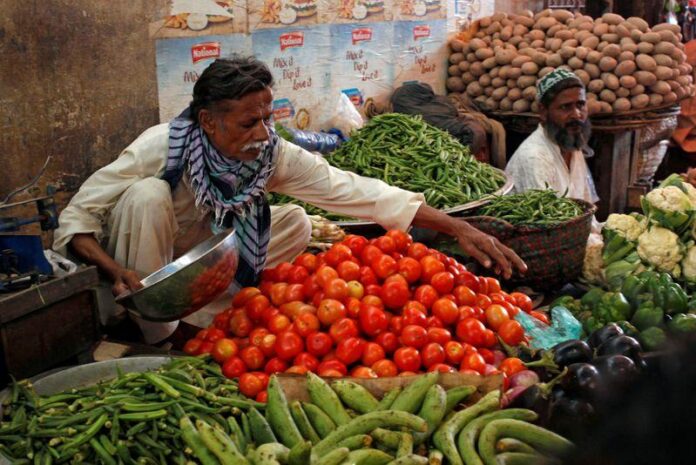ISLAMABAD: The Consumer Price Index (CPI) inflation rate increased to 8.6pc year-on-year in June, the Pakistan Bureau of Statistics said in its monthly report published on Wednesday.
The rate was 8.22pc year-on-year in May.
According to the data, urban CPI accelerated to 7.6pc YoY in June as compared to 7.3pc in May, while rural CPI climbed to 10.0pc YoY when compared with 9.7pc in May.
This took the FY20 national CPI average to 10.8pc as against 6.8pc in FY19.
As per Intermarket Securities Ltd analysis, the rise in June CPI was primarily led by a jump in food inflation, while both Urban and Rural Core inflation (NFNE) continued to drop.
Urban core inflation declined to 4.7pc in June vs. 5.4pc in May while rural core inflation declined to 5.8pc YoY vs. 6.4pc in the previous month.
Higher food inflation was led by a spike in prices of wheat/flour, potatoes, pulses, condiments and spices. This was somewhat countered by a decline in tomato and onion prices. This led to a sharp increase in both urban and rural food inflation to 12.9pc YoY and 15.2pc YoY vs. 10.6pc and 12.9pc in May.
The CPI could have been higher if not for a 10.2pc YoY decline in the transport index, which was led by a decline in petrol and LNG prices (urban/rural down 13.0pc/11.5pc YoY).
Inflation in housing & utilities and education indices during the month of June remained modest at 5.8pc and 1.1pc respectively for the urban basket (indicating modest pull from aggregate demand).
“Weak domestic demand is likely to keep inflation lower even if supply-side shocks occur. In the same vein, the SBP has revised its inflation target and expects FY21 NCPI to tread lower than the initial projected range of 7-9pc.
“While the government’s decision to increase retail fuel prices (by Rs26/litre) may prove inflationary, there are talks of a potential Rs10/litre reversal in the coming days. We estimate that the CPI will rise by 1ppt as a result of the increase in petrol prices, all else the same,” said an Intermarket Securities report.
Explaining the reasons behind controlled inflation in 2020, sources said that the government recently took various steps to control the inflation rate like against hoarders and providing maximum relief to the public through various packages, including subsidised on the selling of goods at utility stores etc. The incumbent government, after the emergence of the Covid-19 pandemic, had also taken several policy, administrative and relief measures to help bring down inflation to single-digit. The rate had fallen to 8.2pc in May, which fourth successive month showing a decline.
The government also announced an economic relief and stimulus package and reduced rates of petroleum products in March, April, May, and June, sources said.
Moreover, the fall in global commodities prices — palm and soybean oil prices; vegetable oils and sugar; prices of all major cereals except for rice and wheat, soya and rapeseed oil prices helped inflation to remain under control. Similarly, the demand for imported skimmed milk powder and whole milk powder also dampened considerably.




